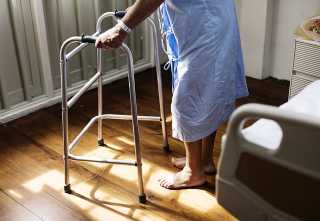

Medicare is an entitlement program for everyone at age 65 (or for certain disabled people, regardless of age). Medicaid, on the other hand, is a public assistance program designed to help people with limited assets pay for medical care. Medicaid applicants must meet certain strict income and asset guidelines.
Medicare is run entirely by the federal government, while Medicaid is a joint federal-state program. Each state has its own Medicaid system; thus, the eligibility rules (and sometimes even the name) vary from state to state. However, each state must adhere to federal guidelines. Medicare does not cover long-term nursing home care.
Part A covers only up to 100 days in a skilled nursing facility, and only if the patient has been admitted to a hospital for at least 3 days. Worse, from days 21-100, the individual must make a daily copayment (the amount changes every year – in 2019 it is $170.50 a day), and it is quite difficult to qualify for those extra days.
Medicaid pays for all of one’s nursing home care if the person’s assets and income are below that state’s guidelines. However, do not be discouraged; if they exceed the state limits, steps can be taken to still be eligible, but care must be taken. There are many traps for the unwary.
For example, giving away one’s assets can be disastrous. If an applicant or spouse gives away assets within 60 months before applying, the applicant will suffer a significant penalty period, during which time the applicant is ineligible for Medicaid benefits; the larger the total of all gifts, the longer the penalty. However, through proper planning with a qualified elder law attorney who is versed in the rules of Medicaid eligibility, those who need skilled nursing care can become Medicaid eligible relatively quickly without having to spend down all of their assets.
The sooner you start planning, the better your chances of getting the care you need most while protecting much, if not all, of your assets. Join us for one of our upcoming workshops to discover what you need to know to get the process started. You'll find dates, times and locations here!


